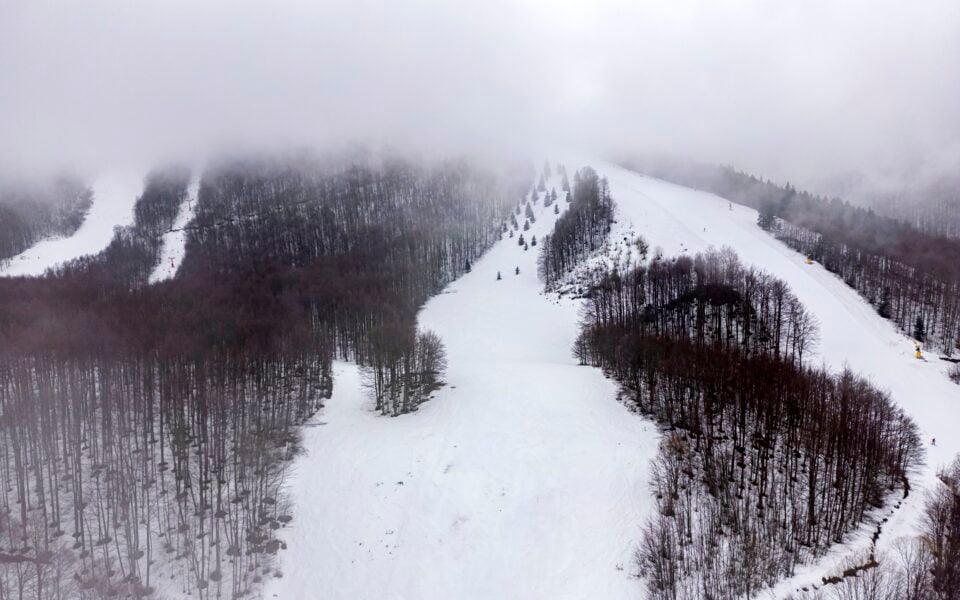Snow cover across Greece remained significantly below average during the 2024-2025 winter season, extending a long-term decline linked to climate change, according to data from the National Observatory of Athens.
Despite a few isolated snow events, the overall extent and duration of snow cover from mid-November to mid-May fell well short of the 2004-2023 average. Of the 180 days typically monitored for snow coverage, 145 were below the seasonal norm – slightly better than the 163 sub-average days recorded the previous winter, but still accounting for 80% of the season, the Observatory’s Meteo unit reported.
Researchers noted that while snowfall did occur – including the early-season Storm Bora from November 30 to December 1, and a mid-January event that brought widespread snow to northern Greece – these episodes were brief. From mid-January through early April, snow cover levels remained consistently among the lowest recorded since 2004.
“The data show that in recent years, and particularly over the past decade, winter snowfall patterns in Greece have become increasingly erratic – ranging from unusually mild periods to brief, extreme weather events,” the report said.
Although April was relatively cold, snow cover exceeded the long-term average on only four days during the month.
The shrinking snow season has serious implications for Greece’s environment and economy. Reduced snowfall affects groundwater recharge and water reserves, and poses risks to sectors such as winter tourism.
According to another Meteo study, snow cover in Greece has been steadily declining over the 1991-2020 period, with the duration of the snow season decreasing by approximately 1.5 days per year. In some mountainous regions of central and northern Greece, this has resulted in the loss of 30 to 50 snow-covered days, along with a significant reduction in snow depth – particularly at elevations below 1,800 metres.
